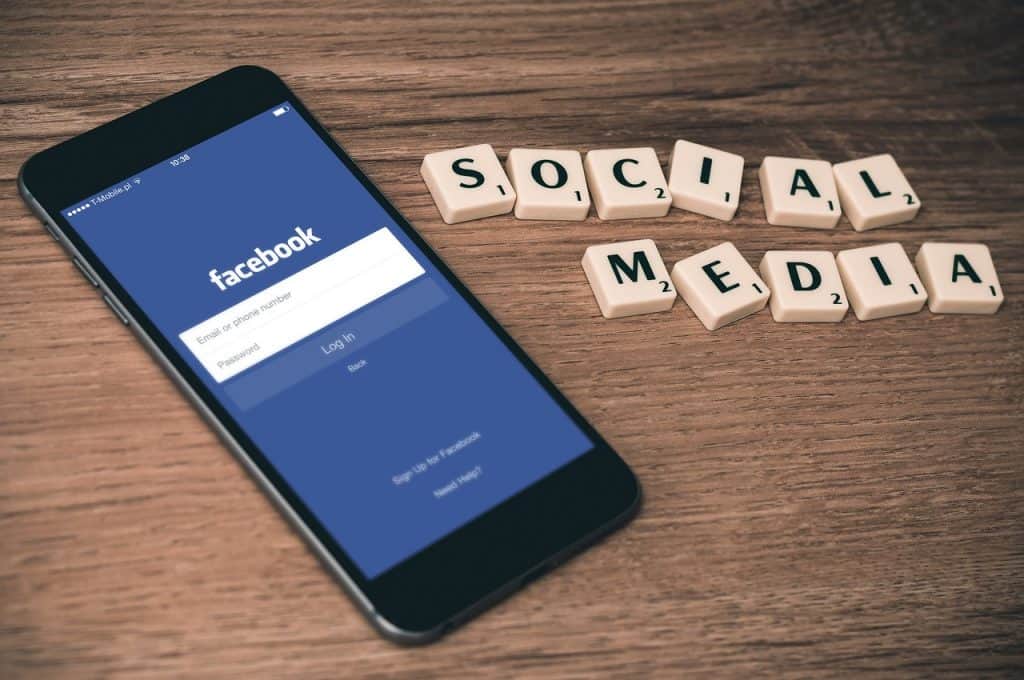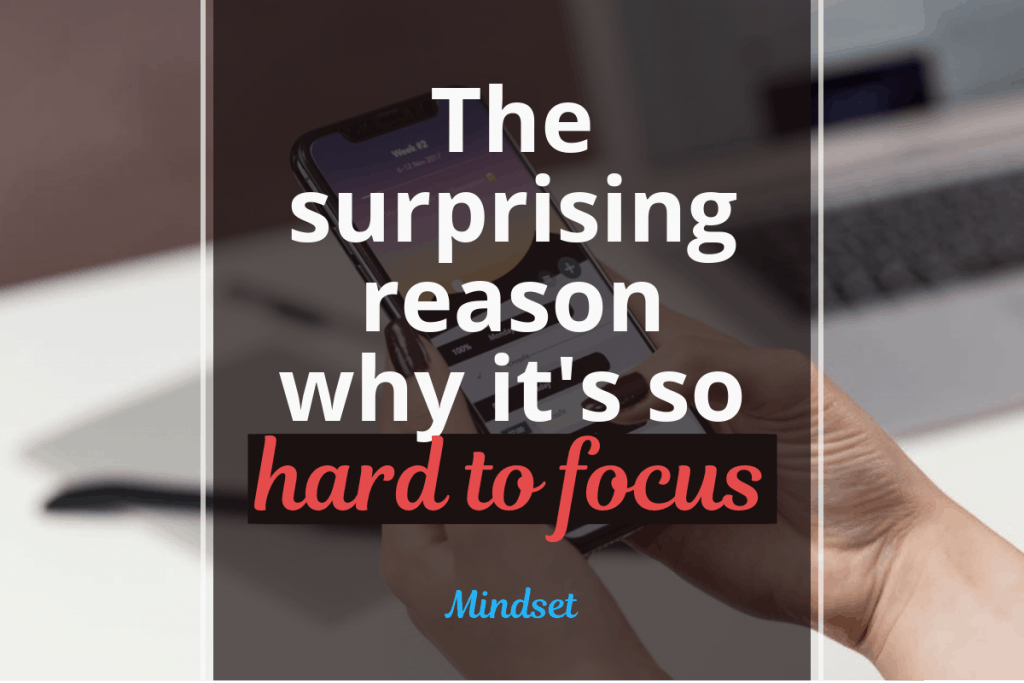🖊 This article was last updated on October 3, 2019
Have you ever found yourself finishing a project, but you just can’t stop thinking about your email, your phone, or your latest social media post?
Many of us can relate to feeling agitated when we don’t check our phones or go online. The only way we can stop feeling anxious is by caving in. So we check our phones several times every hour.
Each time we do, we get a dopamine hit and our anxiety melts away for a few minutes. And then we get that nagging feeling we need to pick up our phone. Again.

While our inability to focus on tasks plays some role here, the truth is technology is not addictive by chance.
It’s getting us hooked by design.
“It’s as if they’re taking behavioral cocaine and just sprinkling it all over your interface. And that’s the thing that keeps you like coming back and back and back,” says Aza Raskin, who created the “infinite scroll” feature now used in virtually every social media app.
A New Business Model
A new type of business has erupted in the last 10 to 15 years. Their main currency: our attention.
These firms–I refer to them as “attention businesses”–have incentives to keep us using devices and apps longer. “In the online economy, revenue is a function of continuous consumer attention–which is measured in clicks and time spent,” Natasha Schull, author of Addiction by Design, pointed out.
Because of this, technology continues to be engineered to better capture–and keep–our attention. As Sandy Parakilas, a former Facebook employee, shared: “You have a business model designed to engage you and get you to basically suck as much time out of your life as possible and then selling that attention to advertisers.”
Brain-Hacking Features
Seemingly harmless–even useful–features of apps, sites, and devices are hacking our brains, and influencing our behavior.
Infinite scrolling, which automatically loads content on our screens, is highly habit-forming. We keep browsing sites, especially when bored, just in case we come across something we like.

The “like” button (including hearts, emojis, shares, and retweets) feed our need for validation. Psychologist Daria Kuss also noted how “likes” further fire users’ need to be active online. “This may feed into compulsive and excessive use, and a vicious cycle of liking content in order to be liked.”
What about the red dot on many apps, flashing the number of notifications we haven’t checked? It taps into our fear of missing out (FOMO), prompting us to read through them.
But our compulsion to stay online goes beyond FOMO. According to research psychologist and computer educator Dr. Larry Rosen, external notifications are not the only culprits. There are internal signals that compel us to check our phones. “From our laboratory research I pinpointed the culprit driving this checking-in behavior as anxiety about feeling the need to stay on top of what all of our social media friends are doing,” he said. “Some call this FOMO–fear of missing out – but from our work, it appears to be less of a fear and more an anxiety-based concern.”
A feature that makes slot machines addictive has also found its way in our devices. Tristan Harris, founder of the Center for Humane Technology and former Googler, pointed out. “Every time I check my phone, I’m playing the slot machine to see, ‘What did I get?’ This is one way to hijack people’s minds and create a habit, to form a habit. What you do is you make it so when someone pulls a lever, sometimes they get a reward, an exciting reward.”
The Costs
Social media sites and apps have many upsides. But when we get hooked, it can cost us our productivity.
In his book Deep Work, Cal Newport shares an interesting equation of the law of productivity:
High-Quality Work Produced = (Time Spent) x (Intensity of Focus)
Cal Newport
We can achieve this intense focus by avoiding multitasking and distractions, which is what we actually do when we check our phones for “just” a minute in the middle of a project.
The short time we allow ourselves to be distracted might not seem much, but Newport pointed out a study by business professor Sophie Leroy on attention residue. Newport writes: “The problem this research identifies with this work strategy is that when you switch from some Task A to another Task B, your attention doesn’t immediately follow — a residue of your attention remains stuck thinking about the original task.”
Is Digital Detox the Only Solution? Maybe Not
It may be tempting to put the blame squarely on tech companies and their teams for creating awesome apps and hacking our brains.

But guarding our time and purposefully guiding our attention, are our responsibilities.
We can use our gadgets and apps’ settings to our advantage. We can customize notifications based on our preference. We can put our phones on silent mode while we work.
We can use apps that help users track time spent online, set limits, and filter social media sites, games, and messages depending on the mode we’ve picked.
We can also build a fixed schedule for checking our email, and keep our phones out of reach during “deep work” hours.
Or we can try changing our phone settings to grayscale, a tip shared by Harris.
Dr. Rosen also suggests taking 10-minute breaks every 90 minutes of using technology. These quick breaks help to calm our overloaded brain. Using this time to enjoy nature, exercise, or meditate helps us recharge and stay productive.
Conclusion
In today’s world, focusing on tasks may be so difficult–but it’s not impossible.
Now that we know why technology is hard to resist, we can better create limits on when and how much we use it. We can build habits around technology use that will support our success, not sabotage it.
If we can combine a more disciplined use of tech with time management hacks like the Pomodoro Technique, task batching or time theming, then we can have the best of both worlds. We can stay connected and stay focused, enjoy tech’s advantages and create high-quality work.
What more can we ask for?
- These Black Friday deals will skyrocket your productivity (2021 edition) - November 11, 2021
- How to Stay Productive as a Digital Nomad - December 23, 2019
- When is the right time to outsource? - December 3, 2019

